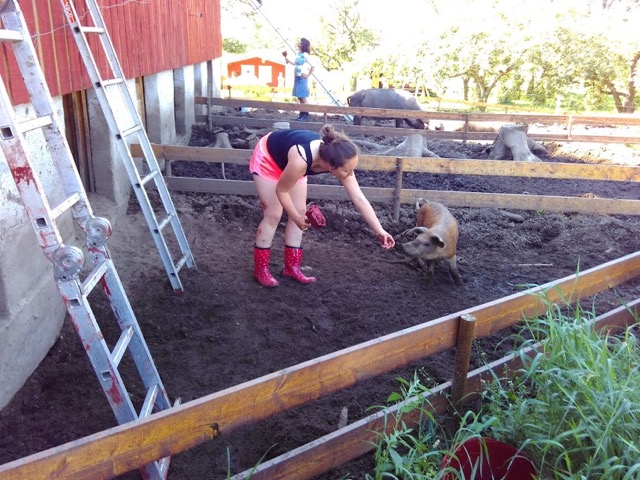
6.30 – meeting in the kitchen to prepare breakfast
7.00 – feeding the animals
7.30 – breakfast
8.30 – meeting at school – lectures, seminars
10.00 – coffee
10.15 – lectures, seminars
12.00 – lunch
13.00 – lectures, seminars
14:45 – coffee
15.00 – lectures, seminars
16.30 – mini-seminars
17.00 – independent work
17.00 – preparation of dinner (dinner was sometimes as late as nine o’clock, because shopping had to be done)
Studying late into the night
The schedule seemingly allowed for a lot of time off after five, but this time off was actually filled with many tasks on the farm and school. Work on the farm – preparing dinner, cleaning, vacuuming all rooms, cleaning toilets and showers, watering plants, garbage disposal – everything is sorted out here, cleaning the dining room, washing the laundry, ironing, washing dishes … work never ended …
We spent ninety percent of nights writing notes, writing essays, reading books and other documents that we discussed in seminars the following days.




Animals on the farm – goats, cows, pigs, chicks and ducklings hatched, horses, a rabbit, and mainly an infinite number of flies (their numbers growing in such a way that after the third week the flies are walking on our hands and feet and no one pays any attention.)


This week was very interesting for me, because some of us attended a math seminar during which we experienced how, using experiments, we can use math in practice.



Two Fridays in a row we had a working morning when there was a general cleaning – someone was washing the windows, another was scraping the ground and pulling the weeds, another kneaded the manure, or cleaned the pigsty, somebody was cleaning the pond, somebody was painting the house red, somebody was collecting wood, or cutting the grass … work was and still is plenty.
On Friday afternoon they always have a community session where they summarize what they accomplished in the past week, what they failed to accomplish, how much they spent and how much is left.



Once again, we spent the weekend at school writing, writing and writing.




Renata Špalková, Táňa Kadlecová and Helena Matoušková from the Czech Republic took part at the AMI Orientation to Adolescent Studies (ages 12 – 18) in cooperation with NAMTA in July 2016 in Montessoriskolan Lära för livet, Rydet, Sätila, Sweden. The three ladies are all active in the growing Czech community of adolescent studies. In three places in the Czech Republic they build their Adolescent communities.
http://www.montessorimozaika.cz